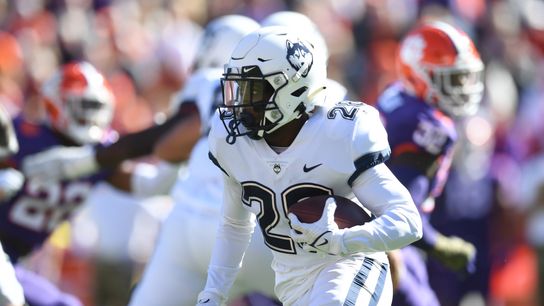On Wednesday, UConn announced it will cut four sports: men's cross country, men's swimming and diving, men's tennis and women's rowing. While it's hardly a national tragedy that UConn no longer offers men's tennis, it's a shame to see anyone lose opportunities, especially due to forces so far out of their control as Covid-19.
But Wednesday's news begs an obvious question. Why do those athletes have to lose scholarships and those coaches lose jobs while UConn's football program remains untouched?
UConn's football program, you'll recall, is going it alone as an FBS Independent after the athletics department left the American Athletic Conference for the Big East and the American declined to keep the Huskies as a football-only member.
The Huskies did join the FBS on a full-time basis until 2000 and, though they eventually appeared in the Fiesta Bowl as Big East champions in 2010, big-time football has largely been a losing proposition. In fact, UConn has not booked a winning season since going 8-5 in 2010. The Huskies are 3-21 over their past two seasons, 9-39 over their last four, and 100-142 since joining FBS.
Surely, it must make more sense (of both the financial and common variety) for the program to compete at a lower level with lower costs. Right?
Not exactly, says UConn (via
Here is the university's response to all the people in my mentions asking why football wasn't cut pic.twitter.com/IHGnnnTnOG
— Alexa Philippou (@alexaphilippou) June 24, 2020
" target="_blank" rel="noopener noreferrer">Alexa Philippou).
Though the first paragraph explains why UConn can't drop to FCS from a contractual sense, the last two explain why they never will from a cultural one.
In short, UConn believes its would rather watch their Huskies play a punching-bag game against North Carolina and vie for a spot in the AutoNation Cure Bowl rather than compete for a Colonial Athletic Association title.
And while the CAA is not the American, it's still a pretty darn competitive conference in its own right. Can you imagine if UConn dropped down a level and still tried to crack the .500 mark? It would be a disastrous blow to UConn's earnings potential and its ego.
All of this underscores the larger point, for UConn and any other school quietly thinking about making the same move: In dropping from FBS to FCS, the savings don't accumulate for years, while the costs hit immediately. The great Matt Brown explored this topic in depth earlier this month, writing that the school would undoubtedly save money over time on coaching salaries and all the other trappings of FBS membership, that's a tough sell for an AD working on a short-term contract.
Win or lose, UConn will remain an FBS member for the foreseeable future, though Randy Edsall and company can make the math much simpler if they can drop "or lose" from the equation.
